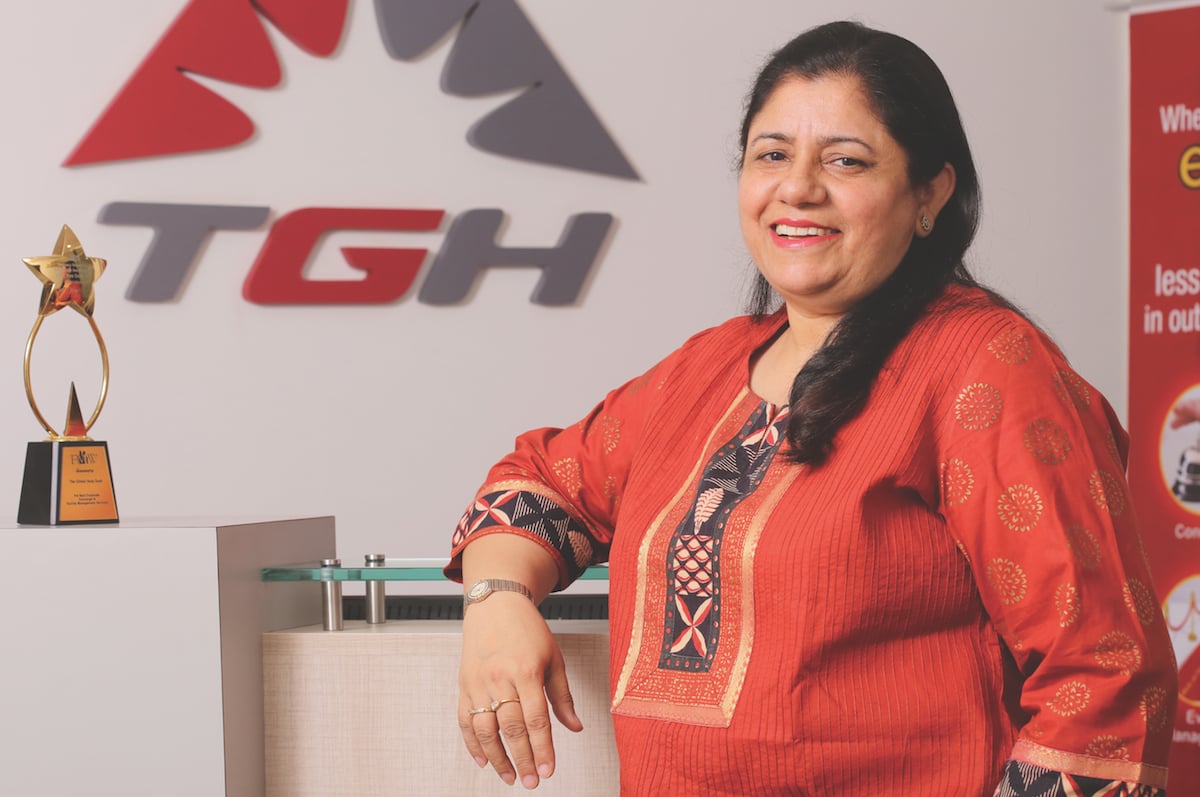Help wanted: Ritu Grover
Demand for The Global Helpdesk’s services is already driving its expansion across India — and now international destinations are beckoning.
A desire for better work–life balance was all the inspiration Ritu Grover needed to start The Global Helpdesk 19 years ago. At the time, she was working as an interior designer primarily on corporate projects. "Somewhere along the line I got so busy with my career that I didn’t have much time for anything apart from working morning to night."
As she started thinking about diversifying from her interiors business, Ritu looked to resolve more than her own work–life balance issues. "It was a time when a lot of multinationals were entering India and I could see that the biggest challenge they were facing was balancing their core and non-core functions, and balancing work and life," she says. In some ways, the idea was ahead of its time. "When we started, it was a bit difficult to explain to clients why they should outsource all of their facility requirements to companies like ours, but now it’s relatively easy."
Some of the companies that adopted the concept early are still using its services, and Ritu says the company’s expansion across India has been driven by the needs of clients. "Our clients pushed us out of our comfort zone," she says. "That was 10 years ago, and ever since then we’ve been spreading ourselves across India. We’re already in the tier one cities and are planning to enter tier 2 and tier 3 cities."

"Within 3 to 5 years, we want all our operations to be based solely on technology and apps." – Ritu Grover
And that’s just the start of it. With most of its client base consisting of top corporates, multinationals and Fortune 500 companies, The Global Helpdesk is now setting its sights on international expansion too. "We’ve been working with some of our clients for more than 18 years, and I’m sure they’ll give us a chance when we want to break through internationally as well."
Expanding overseas is just one ambitious goal Ritu is setting her sights on for the business. With the Indian government’s Startup India and Digital India initiatives, Ritu believes the time is now to leverage the business with technology. "In the next year, we will be bringing out some real revolutions and developments, and within 3 to 5 years we want all our operations to be based solely on technology and apps."
It’s already harnessing technology to stay ahead in what Ritu describes as a manpower-dominated industry. "A lot of verticals that we offer to our clients are based on our homegrown applications and softwares that we’ve developed in-house" — for instance, its concierge service, which clients can access, pay for and track online. It also offers an end-to-end mailroom management service with its homegrown software, Prom@il.
"Similarly, we customise a lot of inventory software for customers based on their specific requirements. The software helps a lot of organisations improve their employee productivity and achieve cost optimisation," Ritu says. Taking big strides forward on the technology front means ensuring staff are well trained and ready to use the technology. "We’re trying to create benchmarks in that segment."

As Ritu explains, the company’s enviable client retention record is achieved through "trying to do good work consistently. That means doing the work with the right attitude, the right intentions and determination, and most of all being transparent. I think these are the things that have helped us to have a strong relationship with our customers."
To Ritu, those attitudes start at the top, and she recognises the importance of nurturing her middle and senior managers. "It’s very important to have the best of the employees at the top because their attitude, team spirit and determination are what the juniors look up to. My aim is to keep their motivation levels high by continuously rewarding them, recognising them, and placing them into training programs to ensure their standards are world class."
Another key factor in building relationships and team spirit within the organisation, says Ritu, is its corporate social responsibility (CSR) activities, which may take the form of sponsoring aged care homes or sponsoring the studies of street children. "These are just some of the CSR activities that we do on a very regular basis," she says.